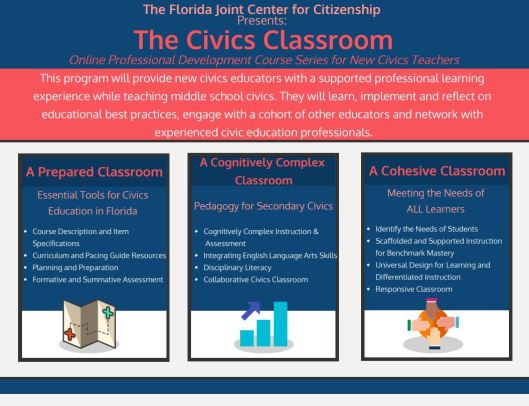
One of our favorite things to do when we have the opportunity to attend the National Council for the Social Studies Annual Conference is to visit some of the poster sessions that feature the excellent work being done in social studies by teachers, pre-service educators, graduate students, and methods professors, among others. One of the more interesting and useful poster sessions I visited featured Dean Vesperman and his student colleague Deanna Grelecki of Luther College.

This poster presentation addressed one of the more difficult and always in-need areas of social studies education: discussions. Using the Civil War as a case study, the session explored five different approaches to discussion. Examples are provided and considered below.
5-3-1

This approach dives deep into a collaborative and listening-oriented discussion. Note how it asks students to compare interpretations and relate it to the text. The engagement with the text here is important. This moves students towards a level of critical literacy that allows them to really use and reflect on the text in collaboration with their peers.
Philosophical Chairs

What is powerful here is that it requires students to be able to discuss and support BOTH sides of an issue. And it moves beyond that old and sometimes problematic ‘Devil’s Advocate’ approach.
Affinity Map

This approach engages students in the important skills of reflection, note taking, and categorizing, and it engages them with ideas that might not have occurred to them. Notice as well that students are engaging with the ideas through writing. What sort of follow up can be done after the use of the Affinity Map approach?
Asynchronous Voice

This is an interesting approach, and one that would likely engage your students incredibly well. You may wish to stick to Google Docs if you have concerns over social media with your kids, but you can certainly model the approach on a social media style? Ask the students to come up with relevant hashtags connected to the reading for example! Or limit them to Twitter’s 240 characters (which will also help them work on being able to be succinct in their points!) You will want to make sure you do go over with them how to engage with others in an online discussion.
Conver-stations

This approach reflects the popular ‘stations’ model, and is similiar in some ways to an extended gallery walk following their individual or paired reading. I would also encourage students to engage with answers that others have written as a final step, rotating back to their final station in the process.
You can find the original lesson plan and the discussions poster at the links below. We will update this post with a version of the lesson aligned with Florida benchmarks next week.







![IMG_3021[1]](https://floridacitizens.files.wordpress.com/2018/12/img_30211.jpg?w=529)












